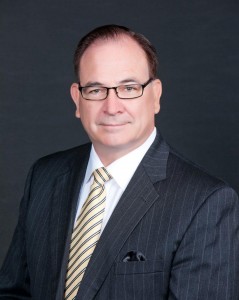![Conway Headshot[2]](http://www.flashreport.org/blog/wp-content/uploads/2013/06/Conway-Headshot2-240x300.jpg) Today, the Assembly and the Senate will consider a Rainy Day Fund proposal (Assembly Constitutional Amendment 1xx) for inclusion on the November 2014 ballot.
Today, the Assembly and the Senate will consider a Rainy Day Fund proposal (Assembly Constitutional Amendment 1xx) for inclusion on the November 2014 ballot.
We believe Californians will support it because they want to end our chronic budget crises and pay down debt. But just as important, fiscal conservatives should be especially pleased that it includes key reforms Republicans have talked about for years that, frankly, no one expected us to achieve.
ACA 1xx guarantees that 1.5 percent of total general fund revenue every year will be transferred into the rainy day account before funding any other programs. In economically robust years, the fund will also receive additional revenue from capital-gains taxes.
To make sure the Rainy Day Fund cannot be easily raided, Republicans were able to secure specific conditions that must be met before any governor can declare a fiscal emergency and access the fund. Revenues would have to dip lower than spending in the previous three years adjusted for population and inflation, and the amount of reserve funds used can only match the shortfall. In other words, if the shortfall is $2 billion, the transfer cannot exceed $2 billion.
Half the money would be deposited into the reserve fund and the other half would be used to pay off debt and cover unfunded long-term costs such as retiree and teacher pensions. This makes sure that the reserve will be built while also providing flexibility to pay down debts and liabilities.
Most importantly, we made sure that the Rainy Day Fund can only be used for economic emergencies and debt repayment, and not as a slush fund for projects like High-Speed Rail. Future legislatures and governors cannot use Rainy Day Fund reserves to pay for bond projects.
Ten years ago, Governor Schwarzenegger championed – and voters passed – Proposition 58, which included a weak Rainy Day Fund. A loophole allowed future governors to avoid putting money in the fund; even worse, the ruling party could raid the fund and spend it on other programs by a majority vote. And that’s exactly what happened.
 In 2012-13, tax revenue to the state grew by $11.4 billion. Common sense would have dictated that some of this tax windfall should have been directed to the Rainy Day Fund. Instead, Democrats used the money to increase government spending. ACA 1xx will ensure that money taken in from future unexpected tax windfalls is saved for a rainy day.
In 2012-13, tax revenue to the state grew by $11.4 billion. Common sense would have dictated that some of this tax windfall should have been directed to the Rainy Day Fund. Instead, Democrats used the money to increase government spending. ACA 1xx will ensure that money taken in from future unexpected tax windfalls is saved for a rainy day.
There was a previous bi-partisan agreement on a strong Rainy Day Fund as part of the 2010 budget deal, but legislative Democrats refused to allow that agreement to go on the ballot for a vote of the people and it was clear to us that nothing was going to change.
Faced with that reality, we chose to negotiate the strongest Rainy Day Fund possible in this current political environment. Knowing that Senate Republicans’ support for a Rainy Day Fund was vital to achieving a 2/3 vote, the governor rightly saw that he needed to work with us. Republicans forced concessions from Democrats on how much money would be saved, how the money could be spent and when. It is a great improvement over the current situation.
While ACA 1xx does not include everything we would have liked to see in a Rainy Day Fund, it includes many positive changes that fiscal conservatives can and should support. The ideas we brought into this discussion have significantly improved the reliability of the reserve fund, made it stronger, and will ensure there is actually money in the fund for when it does “rain.” We’re confident the people will agree when they get to vote for it on the November ballot.
That’s something to be proud of.
Senate Republican Leader Bob Huff, of Diamond Bar, represents the 29th Senate District. Assembly Republican Leader Connie Conway, of Tulare, represents the 26th Assembly District.

